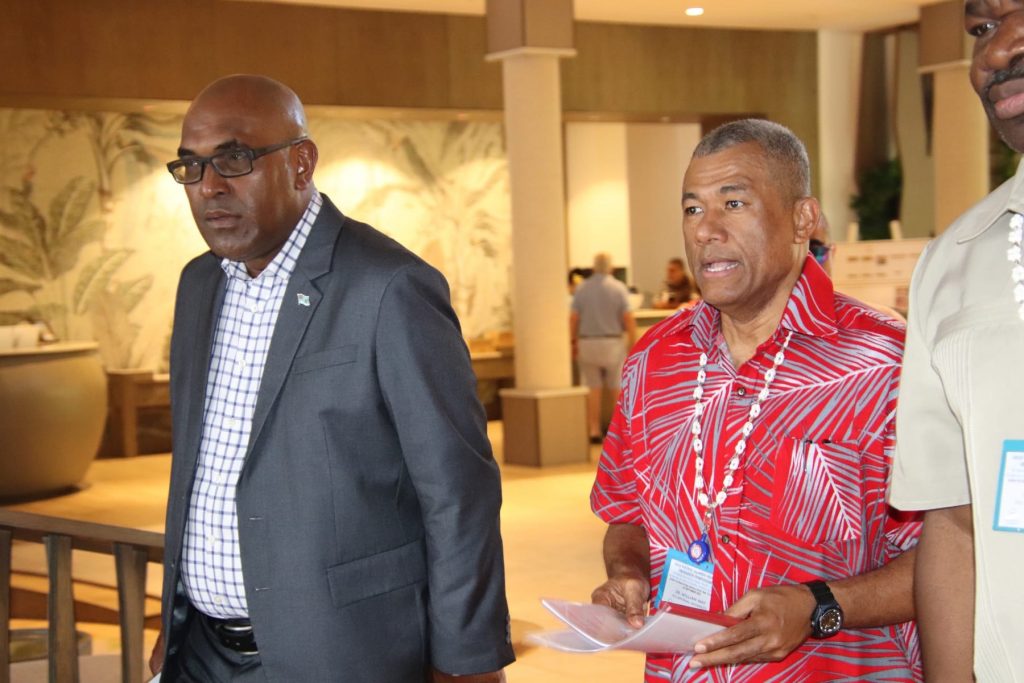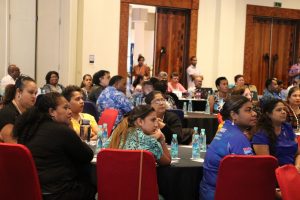

Minister for Health and Medical Services Honourable Atonio Rabici Lalabalavu (left) and FNU’s College of Medicine, Nursing and Health Sciences Dean Dr William May (right) at the symposium.
Rising temperatures, more variability in weather, more extreme weather events, sea level rise, and increasing greenhouse gas and carbon dioxide levels in the atmosphere due to climate change will continue to have a major impact on the health of the nation.
This was highlighted at the Fiji National University’s (FNU), College of Medicine, Nursing, and Health Sciences (CMNHS) Pacific Islands Health Research Symposium 2023 by keynote speaker, Professor Karin Leder of Monash University in Australia.
“Extreme heat can lead to air pollution, increasing allergens, water quality impacts, water and food supply impacts, environmental degradation, extreme heat, and severe heat,” said Professor Leder.

Participants at the Pacific Islands Health Research Symposium 2023.
“The factors can lead to direct and indirect effects on health, acute and long-term health effects, impacts on non-communicable diseases (NCDs) and infections, and multiple pathways for climate effects on health.”
“The environmental degradation has water and food supply impacts, and these can lead to food insecurity and decreases in both animal and fish populations, as well as crop failures. If these changes occur in an acute or long-term fashion, it can lead to forced migration, and it can also lead to the health impacts of malnutrition.”
“Climate change has been shown over the last 50 years or so to decrease the potential yields from crops, so globally, with changes in climate, the yield that we’re getting out of crops has decreased.”
The three-day symposium included discussions on health issues, policies, and research that would help the countries in our region achieve their commitments to universal health coverage.
CMNHS Dean, Dr William May, said that CMNHS is fully committed to both its local and regional focus.
“It is very fulfilling to see alumni from the various islands in the Pacific coming to present and share their findings with us. It is a reflection on the institution’s training and the importance we have placed on research, that is now bearing fruit across the nation and the region,” Dr May said.
“As a University, we are very proud to see the impact of the programmes on the lives of the graduates and the changes and impact they are making in their countries to make those changes and taking small steps to inform their governments. They are localising the research and applying it in the context that they are living in rather than us dictating what should be done in their own countries. They own the research and own the policies and implementation that result from those changes.”
The Symposium was co-funded by the Department of Foreign Affairs and Trade (DFAT) via the Pacific Community’s (SPC) PacEVIPP Project.